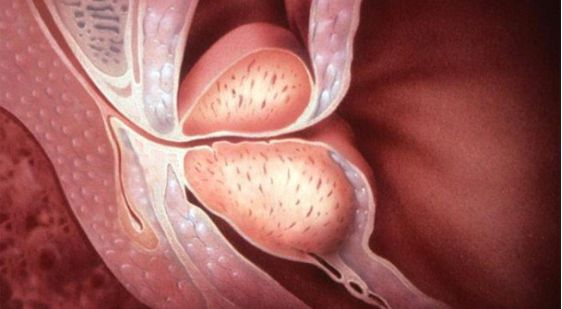Sulyman Kuranga, an urologist at the University of Ilorin Teaching Hospital (UITH), has described prostate cancer as an “epidemic in waiting” in Africa.
Kuranga gave the warning on Monday while delivering the 180th inaugural lecture of the University of Ilorin, Kwara state.
He said prostate cancer is more aggressive among black African men who were more likely to be affected and die from it.
The disease, he said, is one of the leading causes of death among males worldwide. He, however, said it was curable through early detection and prompt access to good medical facilities.
The urologist identified ageing, family history, race, obesity, sexually transmitted diseases, cigarette smoking, vasectomy and benign prostatic hyperplasia as some risk factors for prostate cancer.
He added that “early detection of prostate cancer is important so that the scourge and the menace of this disease can be reduced to the barest minimum”.
He called on government at all levels to organise and conduct a programme towards promoting awareness and early detection of prostate cancer.
“This programme included dissemination of information regarding the symptoms and signs of prostate cancer, the risk factors associated with it, the benefit of early detection, the treatment and consequences of delay in treatment,” Kuranga said.
He explained that due to the nature of the health financing system in the country, it is difficult for most patients to fund the treatment required for prostate cancer.
“Facilities for radiotherapy are limited to five teaching hospitals in Nigeria and there is no time whereby all the five are optimally functional at the same time,” he said.
Kuranga called on the national assembly to “enact a law that will allow the aged in Nigeria to access free medical treatment for prostatic disease”.
He added: “In the developed world, particularly in the United Kingdom and the United State of America, when one attains the age of 60 years, transport and medical services are obtained free of charge.”
The don said “there should be improvement in the financing of Tertiary Health Institutions so that up-to-date equipment can be purchased and relevant training provided”.
He enjoined men to eat healthily and minimise the consumption of saturated fat and red meat.
“Men’s diet should be rich in lycopene (tomato) and other nutrients such as carrots and fresh vegetables, which are in abundance in Nigeria. It is also advisable to consume foods that are rich in Omega–3 fatty acid derivable from fish,” he said.
Copyright 2025 TheCable. All rights reserved. This material, and other digital content on this website, may not be reproduced, published, broadcast, rewritten or redistributed in whole or in part without prior express written permission from TheCable.
Follow us on twitter @Thecablestyle

